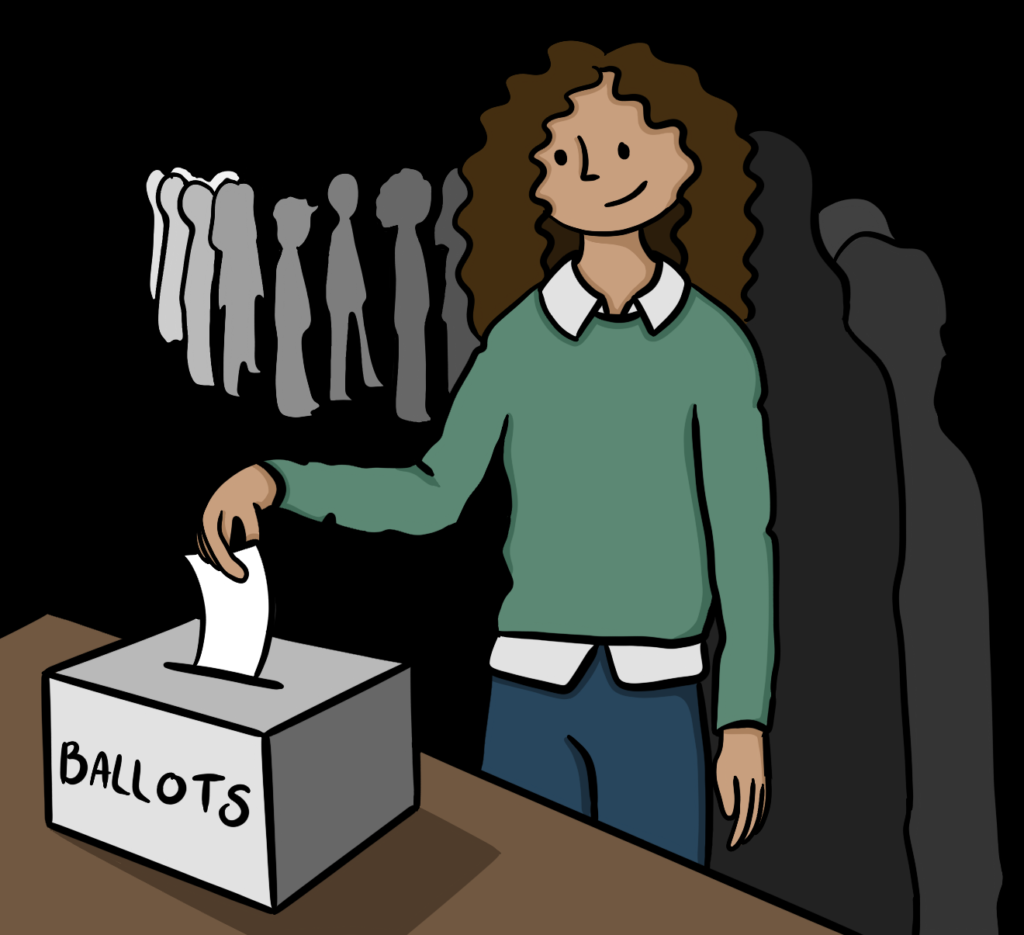Compulsory participation would encourage expanded voting access, increase underrepresented turnout

It is a truism that American democracy is struggling not only to function, but to exist. How can we ensure its improvement and survival? Mandatory voting, in which citizens are required to vote in their country’s elections, could go a long way toward improving the state of our democracy.
Also known as compulsory voting or universal voting, mandatory voting is already a practice in over two dozen countries around the world, including many in Latin America. While voting itself is an obligation, citizens are free to choose whichever candidates they wish to elect.
In Australia, voting takes place on a Saturday in order to make voting more accessible for workers, according to the New York Times. Voting is easy, and groups visit institutions such as prisons and hospitals to ensure access. While American turnout hovers around 50% for presidential elections, in Australia turnout tends to exceed 90%. Communities in Australia often host barbecues on election day. After all, it is the weekend. The act of voting becomes a way of building and reinforcing a sense of community.
Mandatory voting would bolster civic engagement and foster a better voting culture in the United States, including, crucially, increased access. A fraying patchwork of election laws, varying from state to state, ensures wildly unequal access depending on one’s place of residence. Thanks to Oregon’s vote-by-mail system and motor voter law, voting in this state is easier than in most of the country.
Black, Indigenous, Hispanic, rural and poor people face the most barriers to voting. According to Pew Research, lower-income Americans are more likely than higher-income Americans to be in favor of mandatory voting. If casting a ballot were made mandatory, voting would necessarily have to become more accessible and equitable.
It would also encourage engagement among a group of voters who often have access, but lack the drive to vote: young people. Although younger generations will be affected long term by the people and policies on the ballot, it is usually older voters who turn out in greater numbers and have a greater sway on elections. We as young adults would benefit from increased representation.
Populism and extremism could decrease as a result of mandatory voting. A 2020 article in the Australian Journal of Political Science explains that this has long been one of the main arguments in favor of the policy. By including underrepresented groups in the political process and giving them a means to combat inequality, it may address some of the positive goals of populism while working against the harmful tendency to descend into an “us against them” mentality of distrust, xenophobia and hate.
Mandatory voting does not have to come with strict penalties for those who do not wish to participate. Other countries allow for religious exemptions and written appeals explaining that a particular circumstance prevented a person from voting. Monetary penalties risk discriminating against the poor. These penalties could easily be waived for those whose financial situation prevents them from being able to pay.
There also does not have to be any penalty for casting a blank ballot. The idea behind mandatory voting is not to force people to comply with the government. It is founded on the idea that there should be a reciprocal relationship between citizens and their representatives, and all citizens should be able to participate in decisions that will profoundly affect their lives. If someone does not wish to fill out their ballot, then that is their choice. On the other hand, formerly disenfranchised voters will have access, and voters who previously did not care about elections will be in an environment that encourages participation and builds a sense of community.
Some may bristle at the words “mandatory” or “compulsory,” insisting that they express coercion and go against the American value of freedom. However, no one in the U.S. has unlimited freedom. You probably obey the speed limit, more or less. You have the right to free speech, but not the right to incite acts of hate and violence. Living among other people requires you to modify your actions in order to respect the freedom and safety of others. Spending at most a few hours at a weekend barbecue is a small price to pay for your own enfranchisement.
Subscribe to the Mossy Log Newsletter
Stay up to date with the goings-on at Lewis & Clark! Get the top stories or your favorite section delivered to your inbox whenever we release a new issue.

Leave a Reply